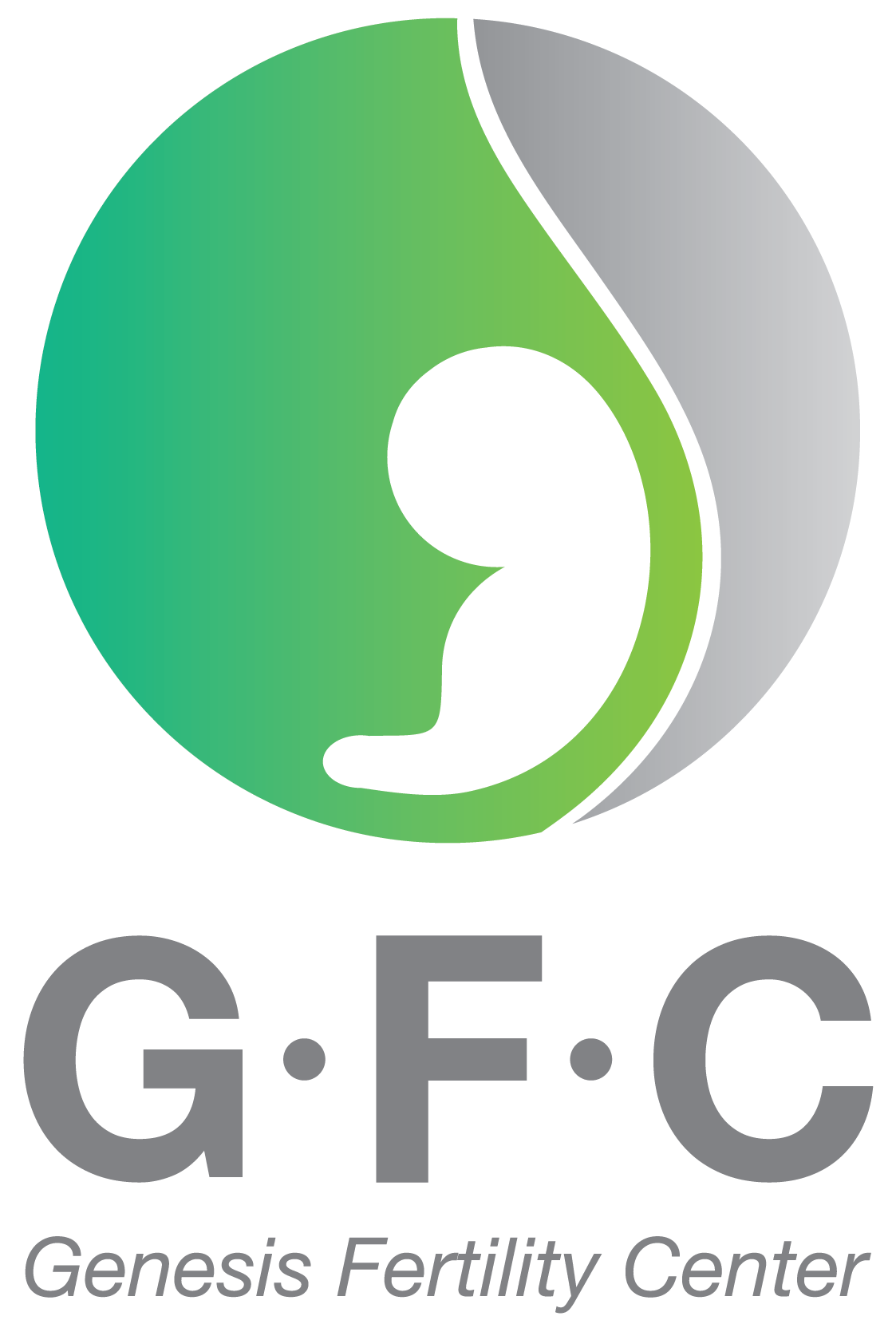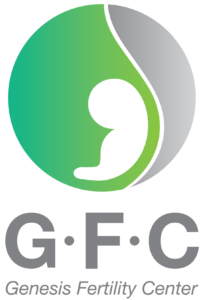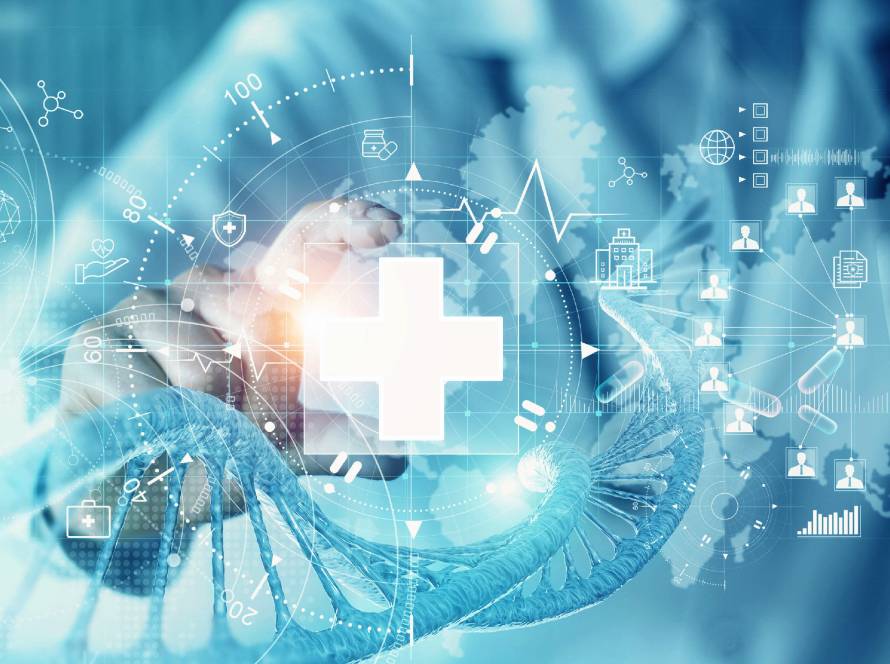Chromosomal testing is important for mothers in older age
Currently, with the changing values of Thai women from the past, in terms of education that must be completed and the ambition for career advancement, these are all factors that lead to Thai women marrying later. Additionally, the increasing age of women is one of the causes that make many couples face the difficulty of having children, as well as the many risks during pregnancy such as abnormalities in the fetus’s chromosomes, as well as complications from the mother that affect the unborn child.
Why does advanced age increase the risk of infertility?
Age and fertility are related, even though women are born with over a million eggs, that number naturally declines as they age. The quality of eggs also declines, and fertility decreases as well. Women are most fertile in their 20s, and their fertility starts to decline around the age of 32, with a rapid decline after about 35 years old. The pregnancy rates are as follows:
- Women in their mid-20s have a 20% chance of getting pregnant after trying for 3 months.
- Women at the age of 35 have a natural pregnancy rate of only 12% after trying for 3 months.
- Women over the age of 40 have a natural pregnancy rate of only 7% after trying for 3 months.
Definition of women at risk of pregnancy:
For the risk of pregnancy, the medical definition of “advanced maternal age” generally refers to women who are 35 years old or older when pregnant. This is based on the age at which there is an increased risk of Down syndrome and aneuploidy, as well as the risk of maternal death or disabilities during pregnancy, and the risk of infertility.
How does age affect pregnancy?
- Risk of infertility: This is because women are born with a limited number of eggs in their ovaries, and these eggs remain arrested in meiosis I until they are ovulated and complete meiosis. Over time, some eggs will undergo atresia, leaving fewer healthy eggs as a woman ages. Additionally, there is a greater chance of errors during meiotic cell division, resulting in an abnormal number of chromosomes in the resulting eggs.
- Risk of pregnancy complications: Women have a higher risk of developing pregnancy complications as they get older, such as gestational diabetes and high blood pressure, particularly if they are overweight. Women aged 35 and older have a higher risk of developing high blood pressure during pregnancy compared to those aged 30–34, up to 2–4 times higher, which increases the risk of developing preeclampsia.
- Placental problems: Pregnant women who are 35 years old or older are at risk of developing placental abruption before the due date. They also have a higher risk of placenta previa, and the risk increases in older pregnant women.
- Chromosomal abnormality: When the egg cells are stuck in metaphase I during pregnancy, at which point chromosomes are lined up in the middle of the cell, an abnormal cell division process called non-disjunction can occur when the chromosomes fail to separate properly, resulting in an abnormal number of chromosomes in the cells that divide.
- Congenital anomalies: These are abnormalities present at birth that are not related to aneuploidy, and their incidence increases with maternal age. Abnormalities can occur in various organs, particularly the heart, as well as other conditions such as esophageal atresia, hypospadias, and craniosynostosis. Additionally, there is also a risk of gene abnormalities.
Why is chromosome testing important?
Nowadays, older couples often have concerns about chromosomal abnormalities. This is often associated with the increasing age of the mother. At 25 years of age, there is a chance of approximately 1 in 1100 live births for Down syndrome. However, it increases to 1 in 350 for mothers at 35 years of age and up to 1 in 100 for mothers at 40 years of age.
The chances of chromosomal abnormalities in a fetus can occur in various forms, such as having an extra copy of a chromosome (trisomy), missing a chromosome (monosomy), or having a portion of a chromosome missing (microdeletion). In humans, there are a total of 23 pairs or 46 chromosomes. Babies with chromosomal abnormalities may experience the following conditions:
- Down Syndrome (Trisomy 21): This is caused by an extra copy of chromosome 21. It is the most common chromosomal abnormality and babies with Down syndrome tend to have delayed development and lower IQ.
- Edwards Syndrome (Trisomy 18): This is caused by an extra copy of chromosome 18. Babies with this condition usually do not live beyond 1 year of age and have small heads and jaws, low-set ears, heart and kidney problems, and abnormal lungs and digestive tracts.
- Patau Syndrome (Trisomy 13): This is caused by an extra copy of chromosome 13. Babies with this condition typically do not survive beyond a few weeks after birth and have cleft palate, small eyes, low-set ears, deafness, extra fingers, and brain abnormalities.
What type of pregnancy should undergo chromosome testing?
Couples who are older, have difficulty conceiving, and choose assisted reproductive technologies such as IVF or ICSI should undergo chromosome testing. These procedures involve creating an embryo outside of the body and then transferring it into the mother’s uterus. Scientists select embryos based on physical characteristics, but this does not guarantee that the embryos have normal chromosomes. Therefore, it is recommended to test the chromosomes of embryos created through IVF or ICSI to reduce the risk of Down syndrome and other genetic disorders in the baby.
Who should undergo chromosomal testing for embryos?
Women who should undergo chromosome testing of embryos include:
- Women aged 35 or above who are undergoing the process of ICSI.
- Families who have experienced two or more cases of miscarriage.
- Families with members who have genetic or chromosomal abnormalities or disorders.
- Families with members who have inherited diseases, genetic conditions, or chromosomal disorders that could impact the health of the offspring.
- Families who have previously undergone IVF or ICSI procedures with good quality embryos but were unable to get pregnant.
NGS as chromosomal testing for embryos
Currently, there are various techniques for testing embryos for chromosomal abnormalities. However, Next Generation Sequencing (NGS) technology is considered a technique that analyzes the base sequence in DNA or genetic material of living organisms to detect chromosomal abnormalities in all 24 chromosomes with high accuracy of up to 99.9%, which is higher than other testing techniques. Therefore, NGS has been widely used in testing embryos for chromosomal abnormalities. The advantages of NGS testing are as follows:
- It is a genetic analysis technology that detects the presence or absence of excess or missing chromosomes, which reduces the problem of non-implantation, miscarriage in the first trimester.
- It can comprehensively detect abnormalities in all 24 chromosomes with high accuracy and the lowest false positive rate compared to other techniques.
- NGS testing is an important and necessary step in the process of preparing for parenthood through IVF or ICSI, as it helps prevent and reduce the risk of infertility caused by severe genetic abnormalities such as Down syndrome.
- NGS is a technique for testing the genetics of embryos before they are transferred into the uterus. It screens all 23 pairs of chromosomes in the embryo to select the healthiest and strongest ones for implantation, increasing the chances of pregnancy by up to 72%.
- The advantages of this technology over others include the ability to receive results within 7–10 days and the convenience of analyzing multiple samples at once.
If you are a couple over the age of 35 and experiencing infertility, and considering assisted reproductive technologies such as IVF, ICSI, or IUI, you may have concerns about chromosomal abnormalities. At Genesis Fertility Center, a comprehensive clinic for infertility, you can receive chromosomal testing and a range of services to address your fertility concerns, from diagnosis to personalized treatment options. The clinic is cost-effective and has a high success rate, with transparent preliminary cost assessments.
Call Center 097-484-5335
Monday–Friday: 9.00–20.00 Saturday–Sunday: 8.00–20.00.



